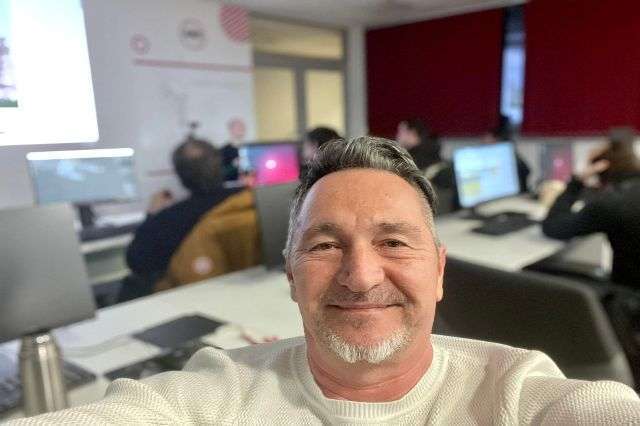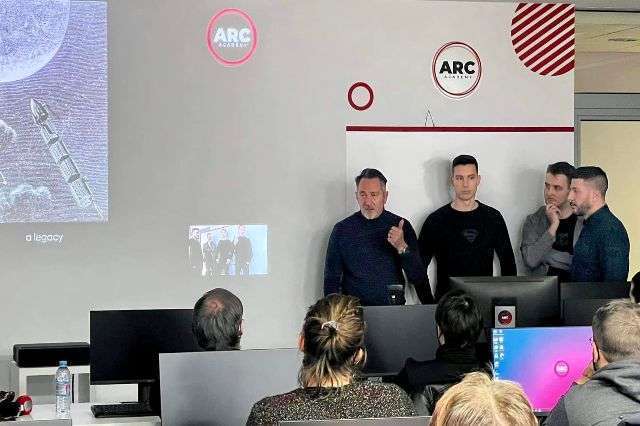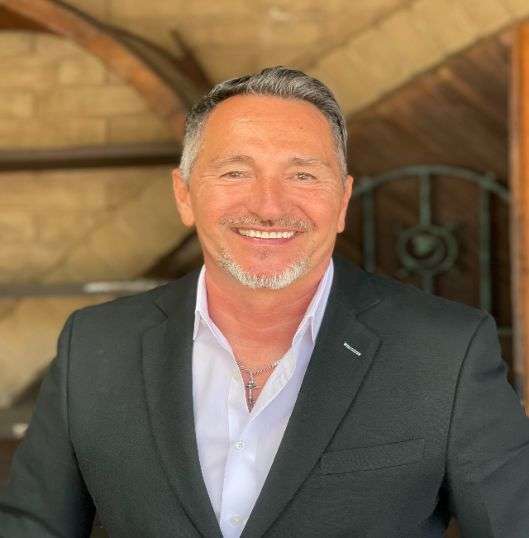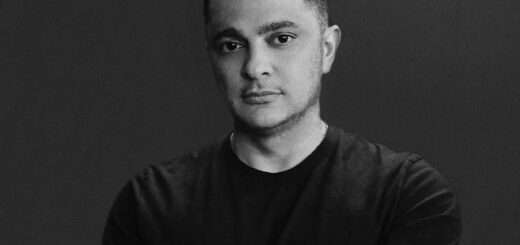Interview with Anthony Christov, Co-Founder of ARC Academy
Editor’s Note: Hey guys, I am so excited to share my one-on-one interview session with renowned Hollywood Art Director Anthony Christov who is also the co-founder of ARC Academy and IDEA Academy. In this entrepreneur interview series, Anthony bore his mind on how his quest to leave the hustle and bustle of Hollywood for his hometown Sofia, Bulgaria led him to co-start ARC Academy, an academy set up to help young people acquire skills and knowledge required to excel in the game, film, and creative industries. The “not-for-profit” academy has now grown across Europe and is greatly valued by many young talented individuals in that region. Anthony also shared some of the challenges they faced creating something that was entirely new as the academy has to fit certain conditions and traditions. I encourage you to read this interesting yet inspiring interview as he shares his life’s journey, achievements, and advice to prospective entrepreneurs
Hello Anthony, I am glad to have you as a guest on our platform, The Total Entrepreneurs. Please, tell us a little about yourself!
I’m Anthony Christov, co-founder of ARC Academy, Sofia and Idea Academy, Rome. I have over 30 years of experience working on films in Hollywood, the last 18 of which I spent art directing for Pixar. I art directed many of the films today’s young people grew up with. Starting at Disney on Rescuers Down Under, to Fox’s FernGully and Titan AE, to films like Finding Nemo, Wall-E many of the Pixar Cars legacy shorts, as well as different roles on other Pixar films. My latest effort was an art direction on Incredibles II.
Can you tell me what ARC Academy is all about?
ARC Academy is an academy founded in 2019 in Sofia, Bulgaria. Its main goal is to help people with talent, motivation and ambition embark on a career in the game, film and creative industries. Our programs – Game Design, Concept Art, 3D Art, Game Programming, and VFX and Animation for film. It’s a two-year program. Most of the game and film studios in Bulgaria and the region are our partners, providing speakers and scholarships. All of our teachers are professionals in their field, so the knowledge our students get is really practical. We also focus on soft skills and teamwork. In the last semester, the students worked together at an indie studio to develop a video game and a trailer for the VFX program. So far, the students have created four projects, and some of them are market ready. We’re glad to say that 85% of the graduates start a career in the creative industry.
What prompted you to take up animation in the early days of your career?
Animation wasn’t what it became later on. It was a relatively small industry, centered mostly around Disney and a few other studios. It seemed like a great way to use my drawing skills to create fun entertainment. I went to an art high school back in Bulgaria, but I was never one to aspire to gallery art or illustration. It just wasn’t my thing. Animation seemed like the perfect fit.
What can you tell us about your experience working in Hollywood? Was there anyone in particular who inspired you?
Hollywood is a strange town. On one hand, it’s exciting and full of possibilities, on another it’s silly and even kind of sad. It’s an attitude, it’s people selling ideas, selling things that don’t exist. I mean if you’re selling a nice car, you have the product in front of you, and still, a good salesperson would try to fire up the imagination of the buyer, to help him see the whole picture, i.e. with him in it. When you’re selling ideas, there is no shiny car. It’s all up to you, to make the client see it all. That takes energy and skill, and I think it forms many of the people living in that industry, it shapes their dominar, even their body language if you like. For me, it was always very amusing and pretty transparent, but I had fun.
As far as people who inspired me, Frank Terry, my first boss at a small studio called Film Fair, then his own studio Terry X2, then Ralph Eggleston, Ralph was the Art Director for the original Toy Story, the first one.
Ralph got an Oscar for his short “For the Birds” but he and I collaborated all the way back in 1989 working on Fern Gully. Ralph broke my heart, he passed away last year. In 2018 he and I shared a nomination for Best Production Design for Incredibles II. Also, John Lassiter was an incredible influence on me and many others at the old Pixar.
What made you leave your job at Pixar and pursue your own venture?
That’s a complicated one. I had always planned to eventually come back to my country Bulgaria. It’s the best place on earth for me. What kept me in the States was, frankly, my job.
Around 2017-2018 Pixar started going through some serious changes, and I think that the studio’s current results speak volumes of the problems those changes incurred.
It was like a sign for me that at 58 at the time, perhaps I should invest the productive time I have ahead in something much more meaningful than worries about Hollywood’s cultural wars and mental breakdowns, so I decided that it’s time to get out of Dodge altogether.
In 2015 I had already co-founded IDEA Academy in Rome, as part of my gradual way out, and in 2019, the year after leaving the US, I co-founded ARC Academy here in Sofia. It’s the best and the most valuable thing I’ve done in my life, giving skills and opportunities to so many young people here in Europe, where traditionally a good industry education is harder to get than in the US.
It’s great to feel that your experience is actually sought after and valued by young people.
What were some of the challenges you’ve faced?
Well ARC is a “not for profit” school and obviously the challenges are always finding people or foundations that would help fund the tuition for students who can’t afford the program. We’ve had a lot of help, first from an American guy, a retired investor named Larry Biehl, a guy who has lots of interest in Bulgaria without any actual connection to the place, which is always fascinating to encounter.
He was very instrumental in helping us to start and even ended up giving us the initial funding to get going.
After that, a foundation here in Sofia, an American one again, called ABF (America for Bulgaria Foundation) helped with securing the machines and many scholarships for the students at the very beginning. That was a very timely intervention, from both of those sources.
What was the most unexpected challenge you faced when Arc Academy was starting out?
I think it was putting together the curriculum and designing the program as a whole. The problem was that we were creating something new and different and it had to fit with some local conditions and traditions, if you like. It’s still an evolving proposition, I feel that our curriculum will never be more than a year old.
My partner at ARC, Milin Djalaliev, comes from marketing and branding, having worked as a general manager of the Saatchi & Saatchi office here in Sofia for the previous 10 years. That was amazing luck, finding a partner like him, as reaching out to people, it really is a skill and a ton of knowledge.
The game dev and VFX for film studios here also saw the value of our initiative, they are too many to mention without risking leaving someone out, so I will reframe, but again, without their support, it would’ve been impossible.
How do you define success? Do you believe that you are a success?
Age-old question.
Of course, I am a success – I’ve been married to the same lovely lady for the last 32 years!
What do you call that?
Truthfully I don’t see the world in those terms. My now friend, Larry Blehl once said that you can choose between making money and making a difference. Success has many forms and shapes, just like the very meaning of life. We humans, being the only animals aware of our mortality, always look for ways to rationalize our existence. I can say that I’ve worked on classics that have shaped the formative years of millions and with the schools I’ve helped thousands embark on satisfying careers, doing what they love and being able to have and raise their families in the process.
Have I been the perfect person? Show me one!
So, to answer, generally, I don’t wake up at night asking myself if I am a success or not.
What books will you recommend to people in your field?
There’s a lot of information out there. Industry books are always good to look into. Personally, I am an avid history reader. History of humanity, history of the arts, psychology. The science of human nature, basically. I think every creator first and foremost needs to be informed.
For example, if you are ignorant about various art movements and the human and societal story behind them, you’re unable to make the connection between the visual style you’re looking for and the story you’re telling. Because let’s face it, we are in the storytelling business. Regardless if you are a visual artist or a technical person, we tell stories.
What keeps you going even in hard times?
I am a solution-oriented individual. I like solving problems, I see adversity as a challenge and pretty much don’t dwell on whether times are hard or not. Every period of our lives or careers has its beauty and its difficulties. Above all I try to find the fun in every problem solving I engage in. It’s there!
What two pieces of advice can you give to someone who wants to become an expert in their chosen field?
- Focus on making great films, not great careers! Climbing the corporate ladder often becomes the essence of what many young and ambitious people end up doing, and yes it is a skill, but if the films you’re making once you get to the top are weak and lose money, you end up killing the studio with your personal success. That of course also means that you cause others to lose their jobs and satisfying careers. No, you don’t “deserve” to be on top just because you are young and full of energy, or because you belong to a particular group, you need to earn leadership with deep knowledge in your field and of course, experience gained.
- Floss… I am kidding, there is no # 2. The # 1 is very important.
Related: 7 Must-Have Leadership Traits and Skills
What is the last ‘one word’ of advice you will give to my readers when it comes to succeeding as a young entrepreneur?
Oh, I don’t know if I am the right person to give entrepreneurial advice.
I guess my advice would be to do your homework and above all, surround yourself with the right people.
It’s the team that counts. As a friend once said, five programmers are like five guitar-bass players – you need others with different skills to make a band.







